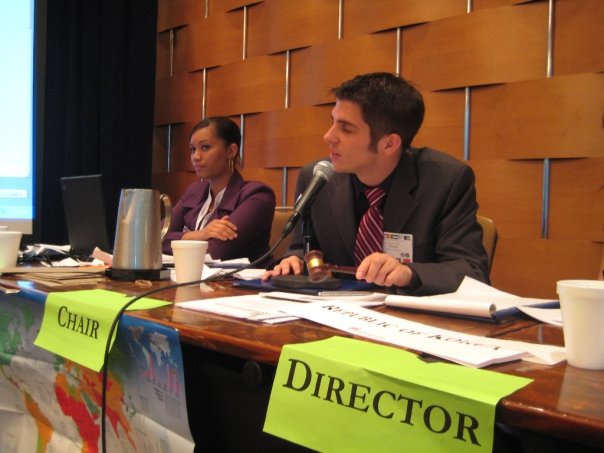
In this series on chairing, I shall go through all the different aspects of doing the job properly: From writing to study guide all the way to the awards ceremony. In this introduction we shall focus on more philosophical issues: We’ve gone through what it means to be a chair, and I’m going to go through the necessary qualities to be a good chair. Getting an award as a delegate is being recognized and honoured for your work. Being made a chair is recognition in itself..
What a Chair needs to do: Having been entrusted with the authority to grant awards and the responsibility over a committee, it goes without saying that the chair should know firsthand what it means to be a good delegate in the kind of committee he’s running. Neutrality over the topic, for example, is just an extension of the delegate’s adoption of country policy, except that, like the Secretaries in the real United Nations, his opinion is that he has no opinion. A good delegate should know the rules of procedure, a Chair should have anecdotes about the time he actually divided the question and vetoed every clause. Chairing is not for everybody, but a very good metric by which to select them is past committee performance: A delegate capable of receiving recognition will be able to recognize excellence in others. Its easy to get caught up in the louder debates and forget that diplomacy, compromise and resolution-writing are the things to focus on. Just as easily, one can get distracted by the tangential debates that don’t have much to do with the topic. A good chair will be able to avoid these common mistakes and ensure that the flow of debate is beneficial for the proper resolution of the topic, without taking sides with any of the blocs.
How to become a Chair: The process to become a chair is fairly straightforward: the various conferences will usually hold a round of applications a month or so before opening delegate applications. It helps to follow the conference’s social media accounts or even one of the secretariat members, if you’re active in your MUN circuit, chances are you’ve met one of them in the conferences you’ve attended. Don’t underestimate the power of networking: remember the secretariats are comprised of students just like you. They will be much more comfortable entrusting someone they know with the responsibilities we mentioned above. If there’s a conference being hosted where you don’t know anyone, try and secure an introduction. At the end of the day, the MUN world is quite small and interconnected, and as international as it gets: That Australian exchange student you saw last year probably knows all about the conference in Hong Kong or Sao Paulo.
Why you should try: If you’ve been to a couple of conferences and maybe won an award or two, you should try and apply. It is a much more mature side of attending MUN conferences, but a lot more fun as well. Everyone who has attended a MUN will have their own story about how shy they were before, or how much more they know about the world after having been involved for a year or two. Chairing is a way to give back to the MUN world, to make sure that the next generations will have the same sort of experience you were so fortunate to have. The opportunities it will bring you will be greatly expanded: The seats at the opening and closing ceremonies will be much better, you’ll be closer to the speakers and in a much better position to secure that coveted business card from the UN official or Diplomat giving the Keynote.
Everyone who likes to MUN should at least try to chair sometime, and I hope that my series will serve as a guide to those who aspire to become one.

